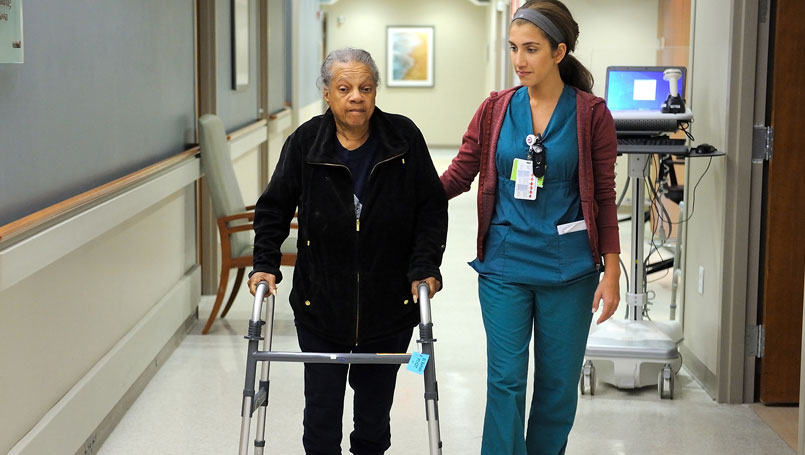Monday, September 12, 2016

In less than 24 hours, Beverly Harshaw, 67, of Highland Park, went from hopping on a bus every day to her full-time housekeeping job at the Somerset Collection in Troy, to becoming totally unresponsive, family members said. They rushed her to the Emergency Center at Beaumont Hospital, Royal Oak.
The diagnosis: West Nile Virus, an arbovirus most commonly spread by infected mosquitoes.
Though she isn’t “out-of-the-woods” yet, said Chris Carpenter, M.D., section head, Infectious Disease and Internal Medicine, Beaumont, Royal Oak, he is optimistic she will eventually make a full or near full recovery, after being released following a 10-day stay.
Three human cases of West Nile Virus have been reported this year, two from Wayne County and one from Livingston, according to Bob Wheaton, manager of Communications for the Michigan Department of Health and Human Services.
“In our area, people need to be more concerned about West Nile than Zika,” Dr. Carpenter cautioned.
In our area, people need to be more concerned about West Nile than Zika.
Dr. Carpenter
“Most people who contract the virus are asymptomatic,” Dr. Carpenter said. “Only about 20 percent develop fever and flu-like symptoms. Less than one percent experience neurologic symptoms like Mrs. Harshaw, meningitis and encephalitis – meningoencephalitis.”
Harshaw’s daughter, Taleease Harshaw described the experience as “So scary. We found her just sitting there. She wasn’t saying anything. Just staring straight ahead. She didn’t recognize any of us.”
In addition to confusion, Harshaw developed a high fever, stopped eating and could not walk.
But with supportive treatment, she started bouncing back in just a few days.
“From all standpoints, Harshaw has made significant progress,” said Gino Sessa, M.D., medical director of the Neurorehabilitation unit, Beaumont, Royal Oak, and the attending physician at her release. “She went from not being able to walk, to walking 150 feet with a rolling walker. Cognitively she improved significantly as well. Her strength, endurance, balance, all improved by leaps and bounds.”
In many cases, Dr. Sessa added, meningoencephalitis can cause significant neurologic injury, including paralysis, and in some cases, even death.
“Other patients take months or even years to get all their functioning back,” he added. “Mrs. Harshaw is a true success story."
Talease Harshaw said, “We want people to know this is out there and to recognize the symptoms.”
While those who are older or immunocompromised can be more likely to develop severe side effects with infection, an element of randomness is involved, Dr. Sessa said.
Harshaw, who has diabetes, has been prescribed six weeks of physical, occupational and speech therapy, and will stay with her granddaughter throughout her recovery.
“I’m just happy to be home and with my family again,” Harshaw said.

With some exceptions, mosquitoes pose a threat until first frost, Dr. Carpenter said.
According to the Centers for Disease Control and Prevention in Atlanta, the most effective way to prevent West Nile virus is to prevent mosquito bites:
- Use insect repellents when you go outdoors. Repellents containing DEET, picaridin, IR3535, and some oil of lemon eucalyptus and para-menthane-diol products provide longer-lasting protection. To optimize safety and effectiveness, repellents should be used according to the label instructions.
- When weather permits, wear long sleeves, long pants, and socks when outdoors. Mosquitoes may bite through thin clothing, so spraying clothes with repellent containing permethrin or another EPA-registered repellent will give extra protection. Don't apply repellents containing permethrin directly to skin. Do not spray repellent on the skin under your clothing.
- Take extra care during peak mosquito biting hours. Take extra care to use repellent and protective clothing from dusk to dawn or consider avoiding outdoor activities during these times.
- Install or repair screens on windows and doors to keep mosquitoes outside. Use your air conditioning, if you have it.
- Help reduce the number of mosquitoes around your home by emptying standing water from flowerpots, gutters, buckets, pool covers, pet water dishes, discarded tires, and birdbaths on a regular basis.
